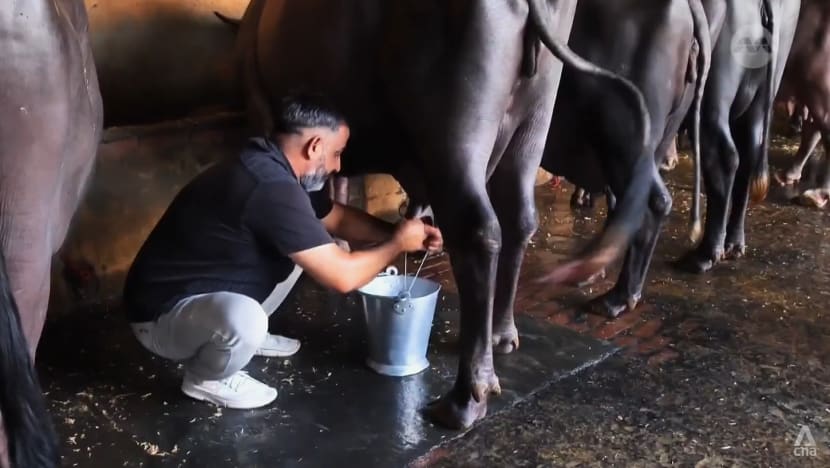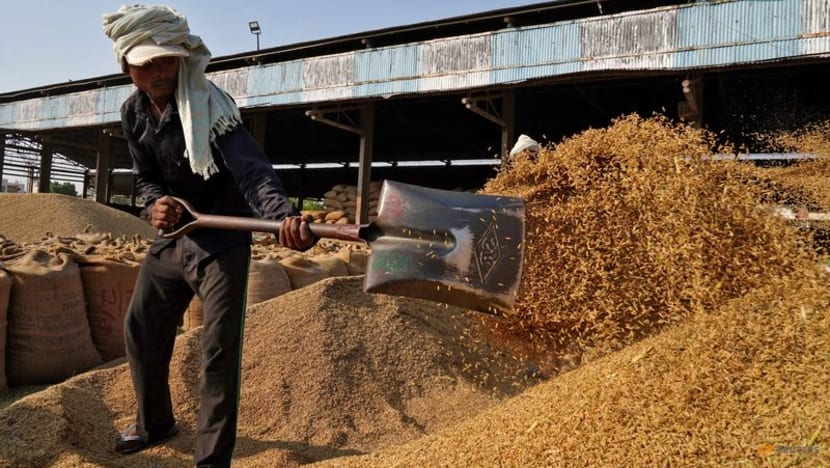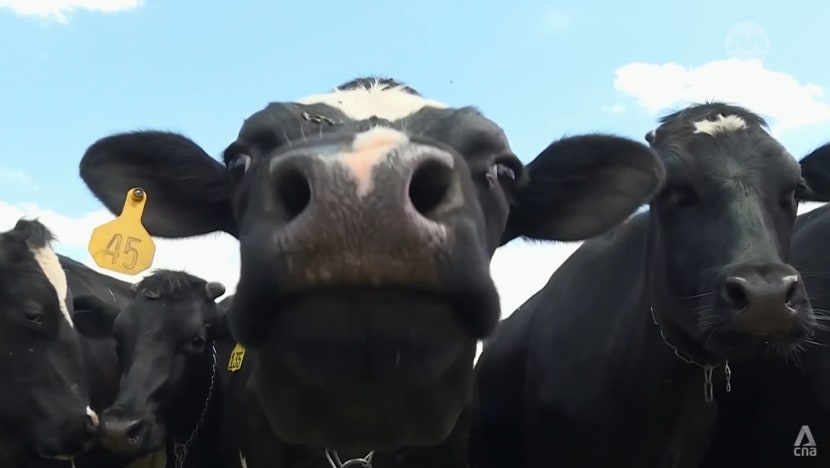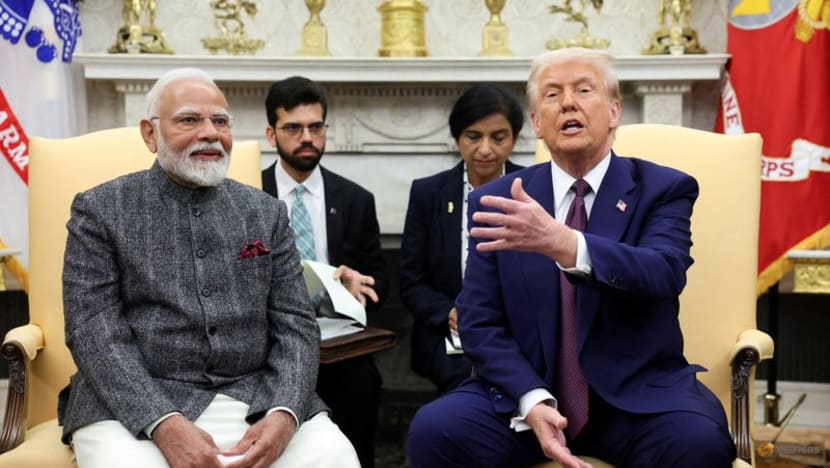Why India’s farmers are worried about US push to export dairy, grain products
Washington is looking to export US dairy and grain products to India, as part of efforts to balance its US$45 billion trade deficit with New Delhi.

Dairy farmer Sanjay Dalal milks one of his buffaloes at his farm in Haryana state, India.

This audio is generated by an AI tool.
ROHTAK, India: Farmers in India’s rice and wheat belt state of Haryana are worried that imports from the United States will flood the market if agricultural duties are lowered as a result of bilateral trade negotiations.
Washington is pushing to export US dairy and grain products to India, as part of efforts to balance its US$45 billion trade deficit with New Delhi.
But those like wheat and rice farmer Sunil, who prefers to go by one name, said the government should push back on demands to open up the sector.
“Farmers have already been demanding that the government buy our grains at 1.5 times the cost of farming but aren’t getting that price. On top of that, if they lower taxes on US imports, then the local farmers will be finished,” said Sunil.
Farmers in one Haryana village are worried that their problems will only worsen if American grains start flooding the market.
They said an existing oversupply of wheat in the Indian market has made it a struggle in some seasons to sell all the wheat produced.
UNEVEN PLAYING FIELD
Indian farmers earn about US$160 each month - or roughly US$1,920 annually - from agriculture and husbandry.
In comparison, the median income of US farmers who are supported by larger land holdings and a more mechanised agricultural system was approximately US$98,000 in 2023, according to US government data.
Sunil said this is why US farm products could have a competitive advantage over Indian farmers.
“Agriculture is a commercial activity for American farmers. For us it’s about sustenance,” he said.

Dairy producers like Sanjay Dalal are also worried about competing with American agricultural imports, which they say could sound the death knell for them.
The owner of Dalal Dairy Farm said he makes US$500 to US$600 in a good month. But during bad times, he barely milks enough from his cattle to break even.
There are 80 million dairy farmers in India, many of them small operators like Sanjay who owns 30 buffaloes.
He said farms like his are already struggling, and that he does not think other farms would survive any competition with US dairy companies.
“America is a rich country. American companies can afford to offer dairy products at cheap rates for a long time to compete with us. And their quality might be fine too,” he added.

US dairy producers have access to tens of billions of dollars in government subsidies annually, while Indian dairy farmers said they receive barely enough assistance to support their businesses.
This uneven playing field is one of the reasons why India imposes import tariffs of up to 60 per cent, which the US says is protectionist.
MORE THAN JUST BUSINESS
India also restricts dairy from bovines that eat feed derived from animal products.
This is because Hindus, who make up about 80 per cent of India’s population, consider milk and dairy products to have religious significance.
It is viewed as a staple food item which is also offered to gods during prayers.
Analysts said this means India will unlikely budge on importing such dairy products, despite US pressure.
“There will be uproar at all the levels - cultural level, political level, citizen level. Somehow (the) Indian psyche cannot accept eating butter or milk from a cow that has been fed meat,” said Ajay Srivastava, founder of trade policy think tank Global Trade Research Initiative.
As US President Donald Trump’s administration seeks to finalise a trade deal with India, analysts are expecting concessions across a broad range of sectors including automobiles, pharmaceuticals and steel goods.

But analysts are cautious over any concessions relating to the agricultural sector, which employs about 60 per cent of the country.
Many dairy and wheat farmers said the survival of their businesses is at stake, with supply and demand concerns being a “bread-and-butter” issue that India cannot afford to concede.
Local media have reported that India is wary of broad reductions of tariffs in its agriculture sector amid the ongoing trade talks with the US, fearing such cuts might affect areas vital for the survival of its farmers and small industries.
“It’s not a trade issue for us,” said Ajay.
“It’s (a) livelihood issue for 700 million people and we cannot fiddle with their (lives).”
















